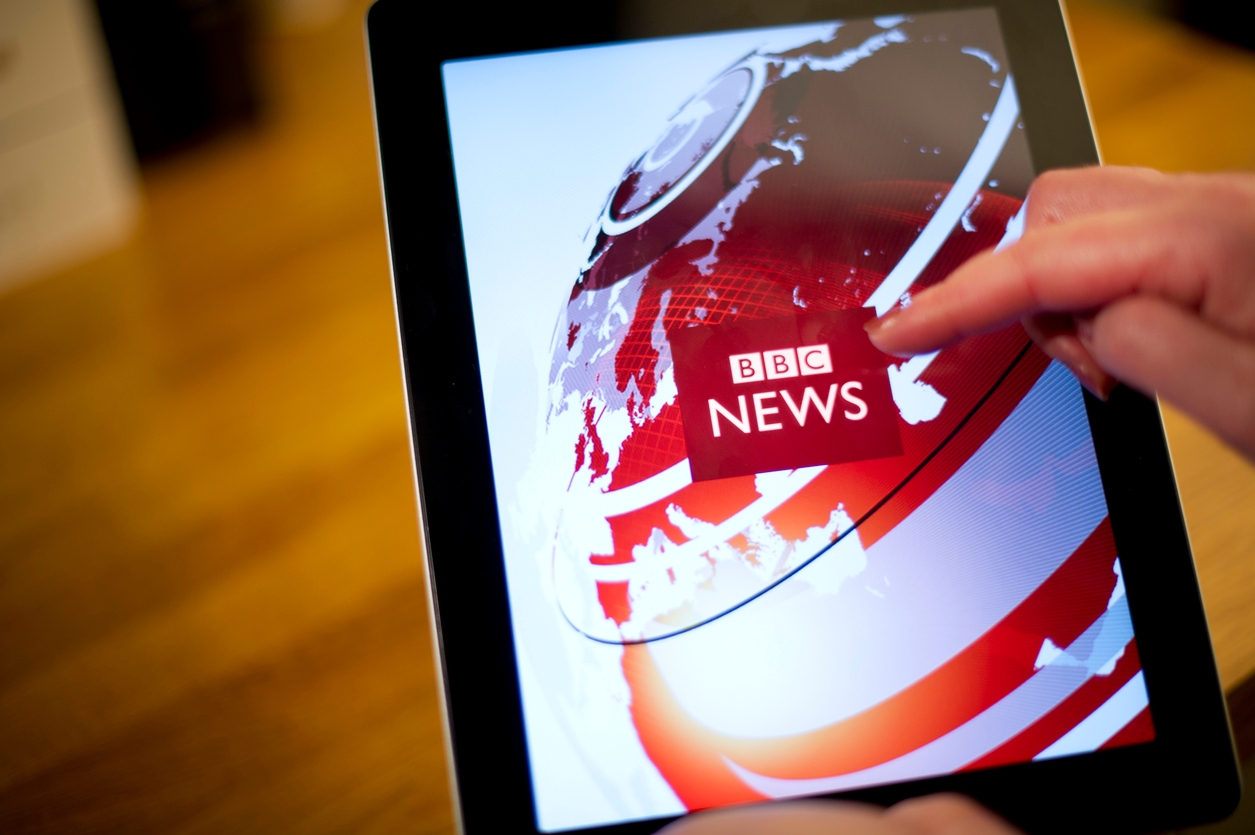Less impartial than Channel 5. That will be the headline generated by Ofcom’s latest annual report on the BBC. In fact, what the regulator’s research finds is that, over the last two years, the percentage of BBC viewers who deem the Corporation’s output ‘impartial’ has fallen from 61 to 58 per cent, while Channel 5 has driven up confidence in its impartiality from 57 to 61 per cent. Indeed, Auntie is still ‘the most-used news source in the UK’ and 70 per cent of regular viewers still say it is ‘accurate and trustworthy’. Nor does Ofcom find the Corporation’s news service breached the Broadcasting Code’s requirements for due impartiality or due accuracy in 2019-20.
Despite this, separate research shows just 54 per cent of us view the news we get from the BBC as impartial. Ofcom puts this down to ‘an increasingly polarised political and cultural landscape’ and notes research showing a correlation between strong partisanship and a perception of BBC bias. Still, Ofcom warns ‘there is a risk that future relationships with audiences could be jeopardised if audience concerns around impartiality continue to grow’.
This recognises a fundamental truth about public service broadcasting: it can only continue serving the public if the public feels served by it. While placing the onus on the BBC to woo back the chunk of the audience whose confidence it has lost, Ofcom’s emphasis on perception subtly places the blame on the viewers themselves. The watchdog hints at this when it reiterates its position that the Corporation should ‘have the confidence to be bolder in its approach to due impartiality’. It could be that 46 per cent of viewers are simply wrong, or madly partisan, or political cynics. Certainly, there are grievance-mongers, typically reinforcing each others’ prejudices through social media, convinced the BBC is consciously and operationally biased against Jeremy Corbyn, Scottish independence, Nigel Farage or Brexit. But these cannot account wholly, or even significantly, for almost half of BBC consumers believing the Corporation is failing in its duty to be impartial.
What viewers are picking up on is not the concerted agenda imagined by the fever-minded of left and right but discrete pops of partiality that hint at political and ethical monocultures in newsrooms and editorial meetings. Emily Maitlis’ monologue on Dominic Cummings. The ineffable silliness of trying to render ‘Rule Britannia’ ineffable. BBC Sounds’ broadside against white women. Even Countryfile got woke. The BBC’s problem is similar to that of political partiality in academia: it’s not that there are a significant number of personnel who are not objective, it’s that they’re all not-objective in broadly the same direction. Subjectivity may be inescapable but, if it is, it makes social, intellectual and ideological diversity all the more important.
During our long, hot, angry summer, I wrote about my sudden estrangement from the BBC, a separation prompted by its fixation on issues of race and identity. It is apparent from how and how often it produces content on these matters that editorial staff and decision-makers consider them exempt from — and even above — considerations of impartiality. They are engaged in advocacy but cannot see it because it doesn’t occur that there is another point of view, or at least not a respectable one. If you haven’t yet noticed it, I invite you to take my Widget of Woke challenge. This refers to the right-hand sidebar on the BBC News website, which retails all the latest feature articles and interviews. The challenge is to see how many days it can go without talking about race, colonialism or identity. I don’t say these matters are unimportant; I say they are less important than the BBC’s hang-ups about them suggest, but still important enough that they be covered through the same impartial lens that other social and political subjects are supposed to be.
I didn’t enjoy writing that piece and I didn’t enjoy writing this one. I’m not a BBC religionist — weird, weird people — but on balance I consider it a force for good; a solid national institution; and a provider of largely excellent international news, documentaries, arts coverage, nature and science programming, classical music and radio drama. I want it to be better because I want it to endure and I want it to endure because its going would leave such a chasm in the national consciousness and our sense of self.
That is changing, however. The Corporation has an existential problem in Scotland, where the nationalists, recognising it as one of the last visibly British institutions in Scotland, have vilified it with unfounded accusations of serving a Labour/Tory, pro-Westminster agenda. BBC Scotland has tried buying them off with an entirely Scotland-based, Scotland-produced, Scotland-facing TV channel and a daily slot for Nicola Sturgeon to talk about Covid-19 and still they rail against it. As the Ofcom report acknowledges, there is a particular decline in the BBC’s reach among ethnic minorities and those on the bottom of the socio-economic ladder and even older audiences, once the Corporation’s most loyal viewership, are becoming more discontented or simply losing interest.
What should (and does) worry the BBC more than any of this is young people, a category Ofcom kindly defines as ‘those aged under 35’. Three years ago, we spent on average 1hr and 15 mins consuming BBC content every day. Today, it is 58 minutes. In the last five years, average weekly TV reach has dropped 16 percentage points among 25-to-34-year-olds; 19 points among 20-to-24-year-olds; and 22 points among those aged 16 to 19. The picture is no prettier in radio: 43 per cent of the time 15-to-24-year-olds spend listening to radio online is for commercial stations, while less than a quarter is any BBC station. As Ofcom concludes:
‘We do not expect a reversal of these trends; the BBC will need to stay relevant to audiences by providing enough of the content they want, and in ways they want to consume it, so that large numbers continue to use the BBC on a regular basis.’
Expecting the BBC to withstand political, social, demographic and technological upheavals all at once and pertain in its present form is like asking a sandcastle to stand firm against a tsunami.
I am about to be kicked out of Ofcom’s sweet definition of youth. I belong to a generation that was still brought up and brought together by family gatherings around a TV set, in the certain knowledge that almost every family in the street was doing the same thing at the same time. There won’t be any more generations like that, with a dominant genre of visual media, viewed through a dominant delivery system, reflecting a dominant national culture.
These changes may mark welcome technological and cultural advances but for the BBC they weaken the very rationales upon which its charter and the licence fee rest. The perception that it has lost its impartiality is far from ideal but what imperils the BBC is that it is losing its purpose, its relevance and its audience.








Comments